In the latest edition of our Unlocking Success series, we look at the benefits for organisations of true skills-based hiring.
In today's dynamic job landscape, roles are constantly evolving. A person who possesses all the requisite credentials today may find that their role has undergone significant changes five years down the line. Take marketing, for instance. Someone who studied marketing in the early 2000s would have acquired fundamental skills that still hold relevance today but may lack proficiency in newer application techniques. Many of the tools and platforms used by companies for marketing today didn't even exist at the turn of the millennium. Consequently, organisations are increasingly prioritising skills over degrees or certifications.
This shift towards skills-based hiring is reshaping the recruitment landscape, offering a more precise and inclusive approach to evaluating candidates. This article delves into the advantages and practical implementation of skills-based hiring within your organisation.
Understanding Skills-Based Hiring:
Skills-based hiring marks a departure from traditional recruitment methods, placing greater emphasis on the specific skills and competencies that candidates bring to the table rather than their formal qualifications. This approach ensures a better alignment between candidates and the day-to-day requirements of the job, offering individuals without extensive degrees equal opportunities to showcase their abilities.
However, implementing skills-based hiring isn't as straightforward as it may seem. While resumes provide a glimpse into a candidate's skill set, they may not fully capture their practical competencies, potentially resulting in mismatches between job requirements and candidate capabilities.
Key Components of Skills-Based Hiring:
Identifying relevant skills and devising effective methods to assess them are essential components of skills-based hiring.
Firstly, employers need to ascertain the skills necessary for a particular role. Once identified, methods to evaluate these skills during the recruitment process need to be established. Technological solutions, such as candidate assessment software, offer viable avenues for this purpose.
Benefits of Skills-Based Hiring for Employers:
Transitioning to a skills-based hiring model offers several advantages:
- Improved Hiring Accuracy: By focusing on skills, employers can assemble teams comprising individuals possessing the precise competencies required for success. This reduces training time and costs, expediting the transition from role fulfillment to operational proficiency.
- Enhanced Candidate Experience and Employer Brand: Skills-based hiring promotes equal opportunities for job seekers, irrespective of their educational backgrounds. Candidates are evaluated based on their skills and potential, fostering a sense of inclusivity and improving the organization's reputation as an employer of choice.
- Cultivation of an Ever-Improving Workforce: Skills-based hiring attracts individuals who possess a passion for continuous learning and skill acquisition. This inclination towards lifelong learning ensures that organizational skill sets continue to expand, contributing to sustained growth and innovation.
Establishing a Skills-Based Hiring Funnel:
A systematic approach to identifying, assessing, and hiring candidates based on their specific skills and competencies forms the foundation of a skills-based hiring funnel. Key steps include:
- Defining Skill Requirements: Collaborate with hiring managers to identify the key competencies essential for success in each role.
- Crafting Compelling Job Descriptions: Clearly articulate the skill requirements in job descriptions, communicating the value of these skills in contributing to organizational goals.
- CV Screening Based on Skills: Prioritise CV screening that focuses on candidates' demonstrated skills and competencies.
- Implementing Skills Assessment Tools: Incorporate skills assessment tools into the application process to gain tangible insights into candidates' abilities.
- Conducting Skills-Based Interviews: Design interview questions that directly assess candidates' skills and competencies through real-world scenarios.
- Using Blind Recruitment Techniques: Implement blind recruitment techniques to eliminate unconscious biases and foster a more inclusive hiring environment.
- Providing Skills Development Opportunities: Highlight opportunities for skills development within the organisation, supporting ongoing learning and growth.
- Collaborating with Hiring Managers: Maintain open communication with hiring managers to ensure alignment on skill requirements and gather feedback on candidates' performance.
- Offering Clear Feedback to Candidates: Provide constructive feedback to candidates, fostering transparency and encouraging continuous improvement.
- Continuous Improvement and Evaluation: Regularly evaluate the effectiveness of the skills-based hiring funnel and refine the process based on key performance indicators and candidate feedback.
Future Trends in Skills-Based Hiring:
The future of skills-based hiring involves a continuous learning and upskilling approach, ensuring candidates adapt and grow with evolving industry trends. This underscores the importance of ongoing education and professional development in today's job market.
Embracing skills-based hiring represents a transformative shift in the recruitment paradigm, offering benefits for both employers and job seekers alike. By focusing on specific skills and competencies, organisations can build high-performing teams while individuals can showcase their true potential. Implementing a strategic and well-defined skills-based hiring process ensures a more accurate and inclusive recruitment experience, fostering a culture of continuous learning and skill development.
Finally
For more information on how we can help you recruit the high-performing individuals you need, get in touch with us on 0870 042 1430 or email us here.
Read our latest “Transformation Trailblazers” Newsletter in which we are talking change, transformation and technology - from the innovators and triumphant to the stagnant and struggling — Read it here
Marta Ortigas is a Director at Malikshaw Interim & Executive, a leading interim management and executive search firm exclusively focused on helping organisations achieve transformational change through delivering high performance, diverse, impactful talent teams.
Transforming our client’s performance through exceptional talent…
+44 7715 905810






